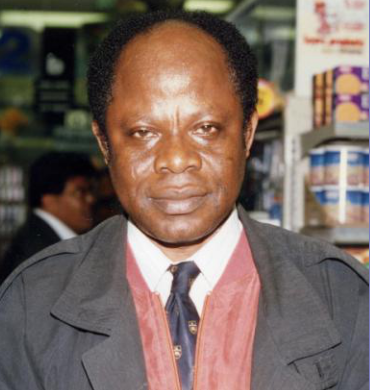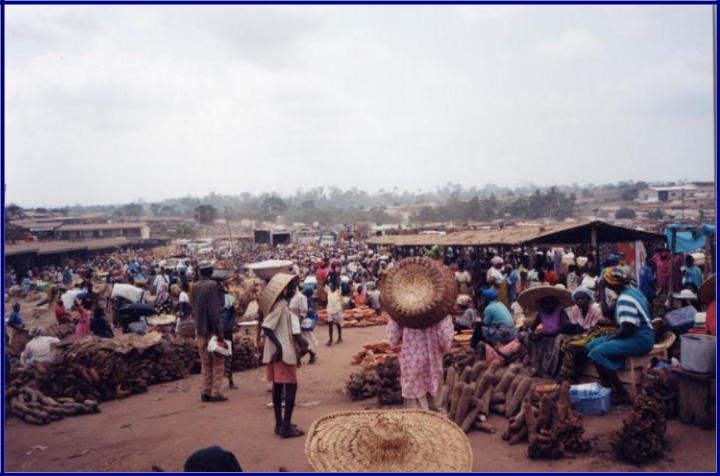
Stephen Ameyaw has researched and written extensively on women and socio-economic development, Aboriginal CED, regional/community planning, and sustainable community development. A native of Ghana, he co-coordinated a study of his home country for a six-nation report entitled “The World Experience in Community Development.” Stephen has served as consultant to many organizations and communities, including the Circumpolar Organization in Ottawa and several aboriginal communities. He is an active member of the Council for the Advancement of Native Economic Development Officers (CANDO), a member of CCEDNet’s Policy Council and a research associate to the Centre for Sustainable Community Development (CSCD) at Simon Fraser University. Stephen holds a PhD in Regional Planning and Resource Development from the University of Waterloo. Stephen has taught at SFU, the University of Calgary, the Nicola Valley Institute of Technology, and Arctic Colleges in Rankin Inlet, Arviat, and Iqaluit, and several aboriginal colleges.
“It made me mad! Mad! Mad!” Stephen Ameyaw jokes. “I felt so deprived.” In Ghana women traditionally do all of the housework, but with four boys and no daughters Stephen‟s mother had to rely on him to contribute while his brothers went out to play soccer with the other boys. Stephen laughs as he recalls the story but he is serious about the feeling of „deprivation‟ that he and many women experienced in being required to work at home. His childhood experience of gender inequality was the initial catalyst for his research into women's empowerment and began his passion (or his “inner flame”) for justice, equity, sustainability, inclusiveness and participation.
Today, Stephen‟s anger has been converted into fuel for social change. This change is happening in the form of Social Economy, which is “filling in the gaps” that have been created by the imperfections of today's market and have left groups of people underrepresented and excluded. While Stephen admits that our market system is “the best one we have,” he understands that it was originally created in a class-based society and remains class-based today. Structuring our economy in this way excludes the small businesses of local traders and leaves the means of production in the hands of affluent CEOs who run monopolies. Social Economy, on the other hand, involves a “continual process towards achieving and sustaining social and economic assets, programs and enterprises for all community members.” It represents a shift in our modern values from self-interest to community-mindedness.
Today, Stephen‟s anger has been converted into fuel for social change. This change is happening in the form of Social Economy, which is “filling in the gaps” that have been created by the imperfections of today's market and have left groups of people underrepresented and excluded. While Stephen admits that our market system is “the best one we have,” he understands that it was originally created in a class-based society and remains class-based today. Structuring our economy in this way excludes the small businesses of local traders and leaves the means of production in the hands of affluent CEOs who run monopolies. Social Economy, on the other hand, involves a “continual process towards achieving and sustaining social and economic assets, programs and enterprises for all community members.” It represents a shift in our modern values from self-interest to community-mindedness.
CCEDNet and the Chantier define the Social Economy as being made up of association-based economic activities founded on values of:
- Service to members of community rather than generating profits.
- Autonomous management (not government or market controlled)
- Democratic decision making; Primacy of persons and work over capital;
- Based on principles of participation, empowerment.
The Social Economy includes: social assets (housing, childcare centres, etc) of community organizations; social enterprises including co- operatives and revenue-generating programs of non profit groups; credit unions and social financing organizations like community loan funds; training and skills development enterprises; and sectoral and regional organizations e.g. renewal energy associations.
This includes the conscientization of the “rich” to expand their concept of vested interest to include the community where they draw their wealth and empowering the “poor” through enterprise and skills development. “Communities,” says Stephen “must be able to have control, to plan and [build their] vision for their own future, and protect and control their resources…Only through community action can you achieve community control.” In Canada‟s Social Economy, communities are propelled by the vision of owning the solutions to their own social, economic, and environmental challenges. Stephen identifies four key principles that provide a framework for the activities within the Social Economy: inclusiveness, accountability, knowledge-based action, and active citizenship. With these values, individuals, families – entire neighbourhoods – can become actively engaged in regenerating their local economies.
Market activities within the Social Economy are not driven by profit for private stakeholders. Rather, the goal is to build and strengthen community assets, which are neither private nor public, but owned by the community. Examples include small-scale enterprises, co-operatives, NGO‟s and non-profits. The future of the Social Economy will depend upon activities that foster solidarity between these enterprises and that create a voice loud enough to change policies.
Many organizations within this sector have grown with the support from both the private and public sectors while, conversely, many others have been able to develop despite a lack of support. Ultimately, Stephen sees the Social Economy as a balancing force, bridging gaps in social services left by government and business while working to bring these two sectors together to contribute in a meaningful way. He calls this an “associative economy” which involves co-operative and mutually supporting mechanisms that promote win-win situations for the business community, universities, civil society, government and the environment.
Stephen argues that the economic growth model developed by Neo-liberalism and the New Right starts with the premise that “if economic growth can be sustained, the poor will be swept along with the tide of rising income.” The Social Economy model, however, acknowledges that the “continued pursuit of the conventional growth model as the focal point of development has been a failure.” Instead, we must move beyond concerns for profit to address the social, cultural and spiritual dimensions of human nature.
Today with his extensive knowledge of socioeconomics and sustainable community development, Ghana‟s marketplaces remain a source of inspiration and analogy for Stephen. He returns to Ghana whenever he can, explaining that “everyone has a place where they find their inner flame.” In Canada, Stephen teaches his First Nations students that each one of them is “a flame in the dark” and he encourages them to bring light to their communities by transforming their anger and frustration into positive action that nurtures justice, equity, sustainability, inclusiveness and participation.
Many organizations within this sector have grown with the support from both the private and public sectors while, conversely, many others have been able to develop despite a lack of support. Ultimately, Stephen sees the Social Economy as a balancing force, bridging gaps in social services left by government and business while working to bring these two sectors together to contribute in a meaningful way. He calls this an “associative economy” which involves co-operative and mutually supporting mechanisms that promote win-win situations for the business community, universities, civil society, government and the environment.
Stephen argues that the economic growth model developed by Neo-liberalism and the New Right starts with the premise that “if economic growth can be sustained, the poor will be swept along with the tide of rising income.” The Social Economy model, however, acknowledges that the “continued pursuit of the conventional growth model as the focal point of development has been a failure.” Instead, we must move beyond concerns for profit to address the social, cultural and spiritual dimensions of human nature.
Today with his extensive knowledge of socioeconomics and sustainable community development, Ghana‟s marketplaces remain a source of inspiration and analogy for Stephen. He returns to Ghana whenever he can, explaining that “everyone has a place where they find their inner flame.” In Canada, Stephen teaches his First Nations students that each one of them is “a flame in the dark” and he encourages them to bring light to their communities by transforming their anger and frustration into positive action that nurtures justice, equity, sustainability, inclusiveness and participation.

